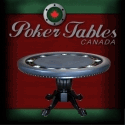More often than not, small stakes poker has the major advantage that you can play for leisure and profit at the same time, especially since you are very likely to find a lot of unskilled players and fish. In fact, because the small stakes games constitute the place where most of the poker players start out, you could easily spot and take advantage of the inexperienced players’ mistakes and turn them into potential profits. In addition you can also often play risk-free with the no deposit bonus offered by some casinos.
In spite of this being true, it is important to note that the key to winning a small stake game of poker can be resumed to making fewer errors than your opponents. In short, there is no guarantee that your poker skills will actually improve. If you ever want to play with the big boys or develop the aptitudes that would participate at the World Series of Poker, then you need to engage in games that are more difficult and play at higher stakes. Let’s review the main distinctions of the high stakes poker game.
1. Betting at a whole new level
Obviously, the most shocking difference in high stakes poker consists of the amount of cash played. Since over time all poker players will eventually be dealt the same hands in poker, what truly matters in high stakes games is creating the best value from the winning hands, while trying to lose as little as possible simultaneously.
While for the small stakes the amounts you bet are relatively important, when playing for big rolls there are additional factors that need to be accounted for. In other words, even though you can afford to base your decisions on your current hands when playing for small cash, in high stakes poker creating the best value for your hand directly depends on your ability to “read” your opponents’ cards.
2. Benefiting from the other players’ mistakes
If everyone was to play poker flawlessly, then this game would definitely become a game of luck as the winning/loosing would be dictated by the cards dealt. However, poker is a game of skills and hence, creating value from the hands involves noticing and taking advantage of the other players’ mistakes.
As you probably figured it out, an essential difference between small and high stakes poker consists of the type of mistakes the other players are likely to make. To put it simply, high stakes poker will typically have less visible human errors and instead of patiently awaiting for others to fail, a skilled poker player is actually constantly adapting his game play in order to deceive and determine his opponents to commit an error.
3. Hand reading is no walk in the park
When playing for a small sum of cash, poker players are not sufficiently motivated to make an effort and read his opponents’ hands. Even if they do, the entire process is rather superficial and at best, you might be able to determine whether a player has a strong or a weak hand. However, as mentioned earlier, in high stakes poker card reading is an integral part of the game and a mandatory skill for success.

